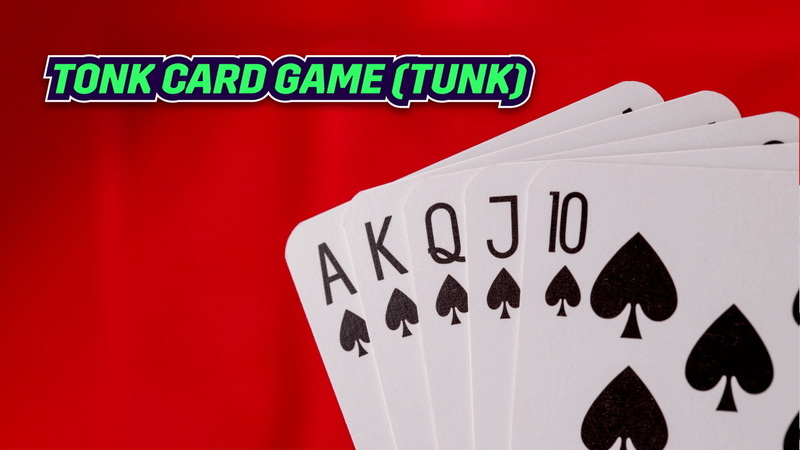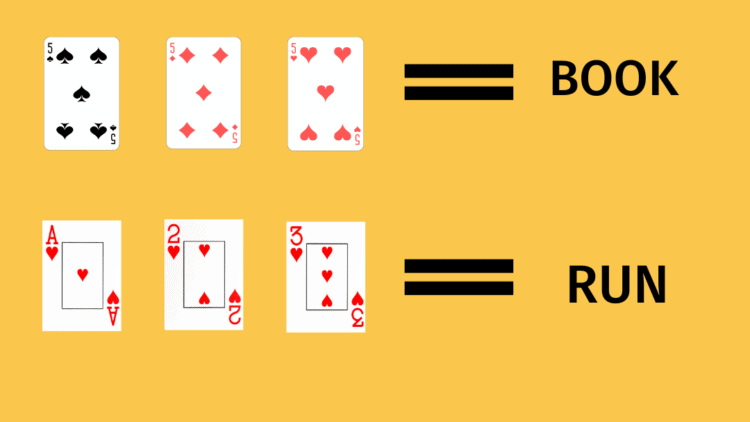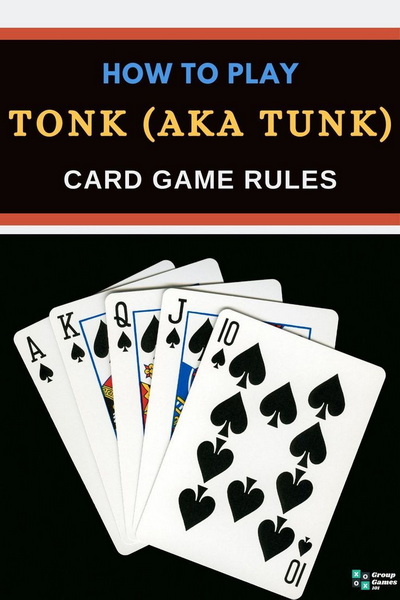Content Menu
● Introduction to Tonk Card Game
>> Overview of Tonk
● Setting Up the Game
>> Choosing the Dealer
>> Dealing Cards
● Gameplay Mechanics
>> Starting Play
>> Types of Melds
>> Declaring "Tonk"
● Scoring System
● Strategies for Winning
● Advanced Strategies and Tips
>> Bluffing and Misdirection
>> Card Counting Techniques
>> Adapting Your Strategy Based on Opponents
>> Timing Your Plays
● Variations of Tonk
>> Knock Tonk
>> Progressive Tonk
>> Team Tonk
● Social Aspects of Playing Tonk
>> Building Relationships
>> Enhancing Critical Thinking Skills
>> Creating Lasting Memories
● Conclusion
● Frequently Asked Questions
>> 1. What is Tonk?
>> 2. How many cards do players receive?
>> 3. What does it mean to declare "Tonk"?
>> 4. How are scores calculated in Tonk?
>> 5. What strategies can improve my chances of winning?
● Citations:
Introduction to Tonk Card Game
Tonk, also known as Tunk, is a fast-paced card game that falls under the Rummy genre. It is popular among players for its straightforward rules and engaging gameplay. The game can be played with 2 to 4 players using a standard 52-card deck, often supplemented with two Jokers to enhance the gameplay. The primary objective of Tonk is to form melds—combinations of cards that can either be sets or runs—and to be the first player to get rid of all your cards.

Overview of Tonk
- Number of Players: 2 to 4
- Deck: Standard 52-card deck plus two Jokers (optional)
- Objective: Form melds and be the first to empty your hand or have the lowest score.
Setting Up the Game
Choosing the Dealer
Before starting the game, players need to select a dealer. This is typically done by having each player draw a card from a shuffled deck. The player with the highest card becomes the dealer. In games with more than two players, seating is arranged clockwise around the dealer.
Dealing Cards
- For 4 Players: Each player receives 5 cards.
- For 3 Players: Each player receives 7 cards.
- For 2 Players: Each player receives 9 cards.
After dealing, the dealer flips over the top card from the remaining deck to start the discard pile, while the rest of the deck becomes the stockpile.
Gameplay Mechanics
Starting Play
The player to the left of the dealer begins the game. Players take turns in a clockwise direction. On each turn, a player must:
1. Draw a Card: Pick one card from either the stockpile or the discard pile.
2. Meld Cards: If possible, they can lay down valid melds on the table.
3. Discard a Card: End their turn by discarding one card into the discard pile.
Types of Melds
Melds are essential in Tonk and can be categorized into two types:
- Sets: Three or four cards of the same rank (e.g., three Kings).
- Runs: Three or more cards in sequence of the same suit (e.g., 5♣, 6♣, 7♣).
Players can also "hit" existing melds on the table by adding cards that fit into those melds.
Declaring "Tonk"
A player can declare "Tonk" if they manage to empty their hand by melding all their cards in one turn or if their initial hand totals exactly 49 points. When declaring "Tonk," they win double from each other player if they are the only one with this declaration.
Scoring System
At the end of each round, players calculate their scores based on leftover cards in their hands:
- Face Cards (King, Queen, Jack): Worth 10 points each.
- Number Cards (2-10): Worth their face value.
- Aces: Worth 1 point each.
The game continues until a player accumulates a total score of 100 points across rounds, at which point they are eliminated from play.

Strategies for Winning
Winning at Tonk requires both skill and strategy. Here are some effective strategies:
1. Form Melds Quickly: Aim to create melds as quickly as possible to reduce your hand size.
2. Watch Opponents' Moves: Pay attention to what cards your opponents are picking up or discarding; this can give you clues about their hands.
3. Utilize Jokers Wisely: If playing with Jokers, use them strategically as wild cards to complete sets or runs.
4. Manage Your Discards: Be cautious about what you discard; avoid giving opponents access to cards they may need.
5. Keep Track of Points: Always be aware of how many points are left in your hand compared to your opponents' potential scores.
Advanced Strategies and Tips
In addition to basic strategies, experienced players often employ advanced tactics that can significantly enhance their chances of winning:
Bluffing and Misdirection
While Tonk is primarily a game of skill and strategy, psychological elements such as bluffing can also come into play. By discarding certain cards or making specific moves, you can mislead your opponents about your hand's strength or intentions. For example, discarding a high-value card might suggest you are trying to form low-value melds when you are actually close to winning.
Card Counting Techniques
Keeping track of which cards have been played can provide valuable insights into what remains in play. This technique requires concentration but can give you an edge when deciding whether to draw from the stockpile or discard pile.
Adapting Your Strategy Based on Opponents
Every player has a unique style and approach to Tonk. Observing how your opponents play can help you adapt your strategy accordingly. If an opponent tends to hold onto high-value cards for too long, it may be beneficial for you to play aggressively and force them into making decisions that could lead them astray.
Timing Your Plays
Knowing when to go for it and when to hold back is crucial in Tonk. If you have a strong hand but suspect that an opponent is close to winning, it may be wise to play conservatively and wait for an opportunity rather than risking it all on one turn.
Variations of Tonk
While traditional Tonk follows specific rules, there are several popular variations that add unique twists to gameplay:
Knock Tonk
In this variation, players can "knock" instead of declaring "Tonk." Knocking allows players who believe they have lower points than their opponents but do not have all their cards melded yet. The round ends immediately when someone knocks, and players reveal their hands for scoring.
Progressive Tonk
This version introduces additional rounds where players must accumulate points over time rather than aiming for a single winning hand. The game continues until one player reaches a predetermined score threshold across multiple rounds.
Team Tonk
In Team Tonk, players form pairs and work together against opposing teams. This variation encourages collaboration and strategic communication between teammates while maintaining individual gameplay elements.
Social Aspects of Playing Tonk
One of the most appealing aspects of playing Tonk is its social nature. The game fosters interaction among players through friendly competition and strategic banter. Here are some social benefits associated with playing Tonk:
Building Relationships
Playing card games like Tonk often brings friends and family together. It provides an opportunity for bonding over shared experiences and friendly rivalry while enhancing communication skills through conversation during gameplay.
Enhancing Critical Thinking Skills
As players engage in strategic decision-making throughout each round, they develop critical thinking skills that translate beyond gaming into real-life situations such as problem-solving and negotiation.
Creating Lasting Memories
Whether it's a casual game night at home or a competitive tournament setting, playing Tonk creates memorable experiences filled with laughter and camaraderie that participants cherish long after the game concludes.
Conclusion
Tonk is an engaging and strategic card game that combines elements of luck and skill. Its simple rules make it accessible for players of all ages, while its depth allows for strategic play that keeps it interesting over multiple rounds. Whether you are playing casually among friends or in a more competitive setting, mastering Tonk can provide hours of entertainment.
The various strategies discussed—from forming melds quickly to employing advanced techniques like bluffing—add layers of complexity that make every game unique. Additionally, understanding different variations can keep gameplay fresh and exciting.
Ultimately, whether you're new to Tonk or an experienced player looking for ways to improve your skills, embracing both strategy and social interaction will enhance your overall experience with this classic card game.

Frequently Asked Questions
1. What is Tonk?
Tonk is a Rummy-style card game played with a standard deck where players aim to form melds and empty their hands.
2. How many cards do players receive?
Players typically receive 5 cards each when playing with four players; this increases to 7 for three players and 9 for two players.
3. What does it mean to declare "Tonk"?
Declaring "Tonk" means you have emptied your hand in one turn or have an initial hand totaling exactly 49 points, winning you double from other players.
4. How are scores calculated in Tonk?
Scores are calculated based on leftover cards at the end of each round; face cards are worth 10 points, number cards are worth their face value, and Aces are worth 1 point.
5. What strategies can improve my chances of winning?
Strategies include forming melds quickly, observing opponents' actions, utilizing Jokers wisely, managing your discards carefully, bluffing effectively, tracking played cards, adapting strategies based on opponents' styles, and timing your plays strategically.
Citations:
[1] https://www.reddit.com/r/theblackcompany/comments/1bmyfy4/tonk_and_how_to_play/
[2] https://www.youtube.com/watch?v=-Yc1Gk8tyU4
[3] https://www.adda52.com/tonk-card-game
[4] https://games.skillz.com/guides/card-games/how-to-play-tonk
[5] https://www.youtube.com/watch?v=tjFyI8HoC0Y
[6] https://groupgames101.com/tonk-rules/
[7] https://www.mplgames.com/blog/how-to-play-tonk-card-game/
[8] https://www.coololdgames.com/card-games/rummy/tonk/
































